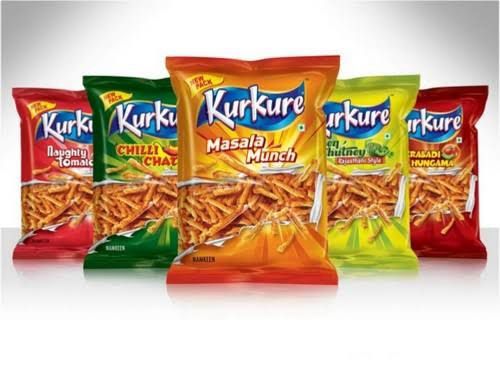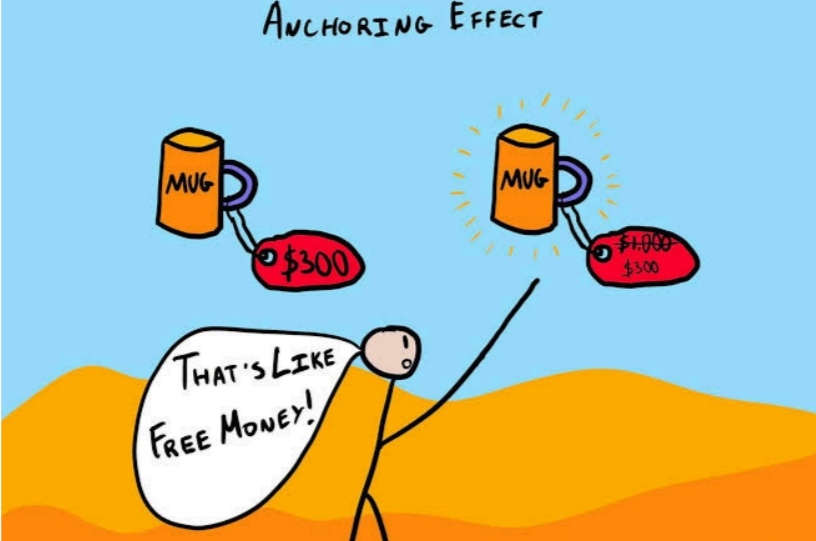Back
vishakha Jangir
•
Set2Score • 1y
𝗣𝗲𝗽𝘀𝗶𝗖𝗼 𝘂𝘀𝗲𝗱 𝗮 𝗯𝗿𝗶𝗹𝗹𝗶𝗮𝗻𝘁 𝗺𝗮𝗿𝗸𝗲𝘁𝗶𝗻𝗴 𝘀𝘁𝗿𝗮𝘁𝗲𝗴𝘆 𝘄𝗶𝘁𝗵 𝗞𝘂𝗿𝗸𝘂𝗿𝗲 !! There are two varieties of Kurkure: Kurkure Lehar Kurkure Both have the same taste, same size, and even identical packaging. However, the catch lies in the pricing. Kurkure is priced at ₹20/- Lehar Kurkure is priced at ₹25/- While a ₹5 difference may seem small, when multiplied across millions of customers, the profit becomes massive. Let’s dive deeper into this smart and psychological marketing strategy: 𝗦𝘁𝗿𝗮𝘁𝗲𝗴𝗶𝗰 𝗣𝗹𝗮𝗰𝗲𝗺𝗲𝗻𝘁: Lehar Kurkure is typically sold at metro stations, railway stations, and vending machines—places where customers have limited time to think or compare prices. 𝗣𝗲𝗿𝗰𝗲𝗶𝘃𝗲𝗱 𝗜𝗻𝘀𝗶𝗴𝗻𝗶𝗳𝗶𝗰𝗮𝗻𝗰𝗲: Since the price difference is minimal for an individual, most people don’t even pay attention to it. 𝗕𝗿𝗮𝗻𝗱 𝗧𝗿𝘂𝘀𝘁: Customers trust PepsiCo as a brand, assuming the higher price reflects better quality or something unique. 𝗧𝗵𝗲 "𝗟𝗲𝗵𝗮𝗿" 𝗘𝗳𝗳𝗲𝗰𝘁: The word "Lehar" itself gives an impression of a premium or upgraded product, influencing perception. In short, this one simple word—Lehar—is helping PepsiCo effortlessly maximize its revenue. Let me know what you think about this smart or psychological strategy, and if you have seen similar examples, please share them with me. :) Follow me vishakha Jangir for more such interesting content !!

Replies (6)
More like this
Recommendations from Medial
Aditya Arora
•
Faad Network • 1y
In 1999, PepsiCo had no clue that Kurkure would beat ITC and 3000 companies and become a 10,000 CR brand two decades later. Here is how they did it in five steps.👇 1. Unlike Western chips, Kurkure's masala-coated corn puffs created a distinct snack
See More
Poosarla Sai Karthik
Tech guy with a busi... • 5m
Oversubscribed 103x – strong market trust ₹854 Cr from anchor investors – institutional backing Valuation at ~₹14,790 Cr – growth story priced in Turned profitable in Q1 FY25 – scalability in action High valuation – long-term play, not a quick flip
See MoreAditi
Will become a inspir... • 9m
Unfinished Business: How the Zeigarnik Effect Keeps Customers Engaged” The Zeigarnik Effect is a psychological phenomenon where people remember incomplete tasks better than completed ones. Businesses use this to boost engagement and retention. For e
See MoreAnurag Upadhaya
Timebank/co-founder ... • 6m
Today, while meeting restaurants to onboard for our platform, we came across something eye-opening. Swiggy & Zomato charge 30–35% commission from restaurants — and that’s not the end. Customers also pay delivery fees, platform fees, and hidden charge
See MorePulakit Bararia
Founder Snippetz Lab... • 11m
"Your first 100 customers won’t come from ads. They’ll come from people who actually give a damn. Cold traffic doesn’t care. Early believers do. They’re the ones who vouch for you, spread the word, and give real feedback. If you can’t sell to them,
See MoreAditi
Will become a inspir... • 9m
“The IKEA Effect: Why We Value What We Build” The IKEA Effect is a psychological phenomenon where people place higher value on products they partially create themselves. The name comes from IKEA, where customers assemble furniture — and end up lovin
See MoreOnly Buziness
Everything about Mar... • 9m
“Give to Get: How Reciprocity Turns Kind Gestures into Customer Loyalty” The Reciprocity Principle is a psychological rule where people feel obliged to return favors. In business, it’s a subtle yet powerful tool. When a company gives something valua
See MoreDownload the medial app to read full posts, comements and news.

















/entrackr/media/post_attachments/wp-content/uploads/2021/08/Accel-1.jpg)



















